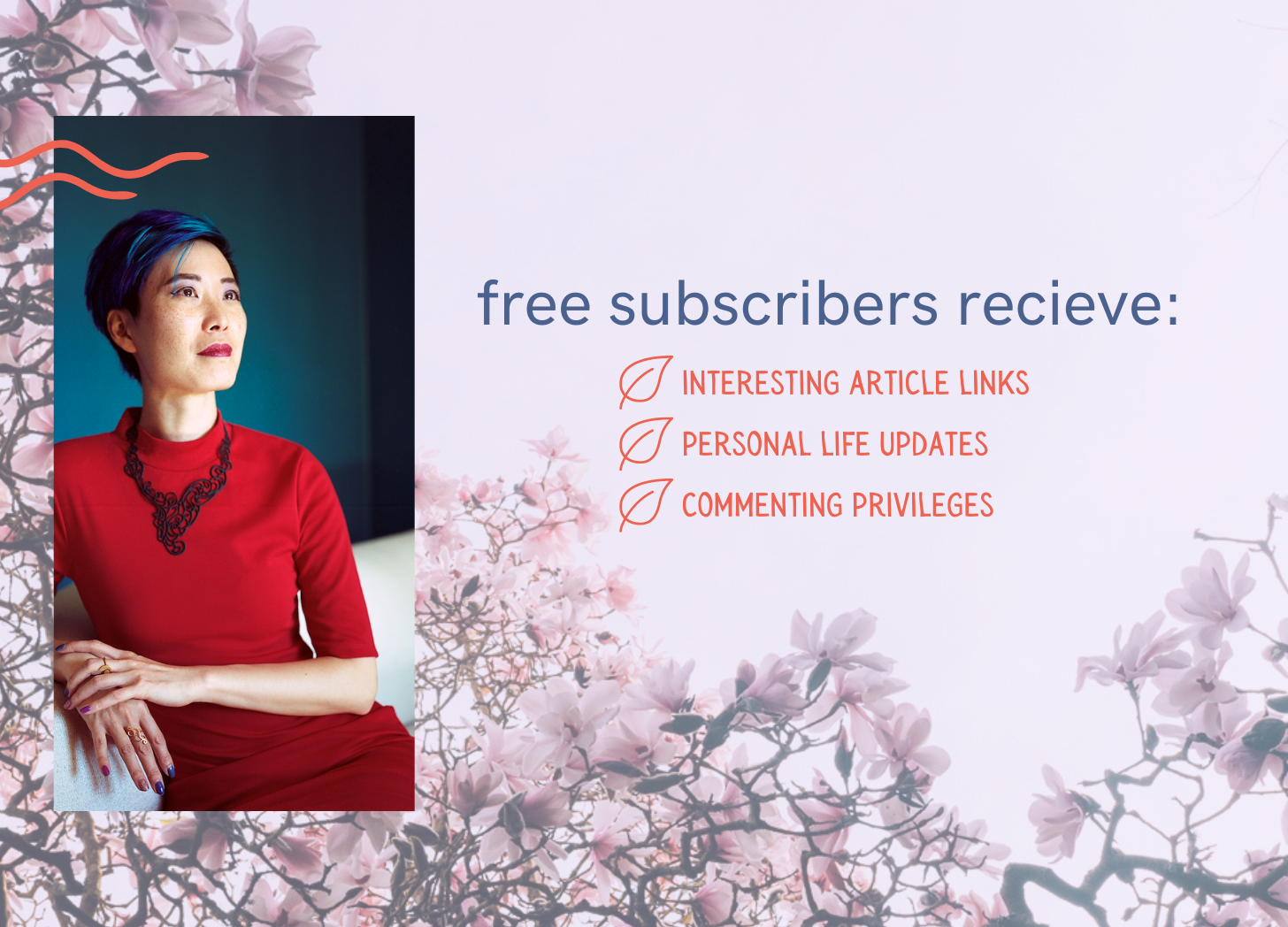When community is taken advantage of
The stories of three industry veterans who were hired into companies backed by investment money and founded by non-coffee people. Their community ties were extracted, and then they were laid off.


When community is taken advantage of
Over the last dozen years—under the guise of a maturing industry—we’ve seen specialty coffee companies consolidate and attract lucrative venture capitalist money, primarily focused on fast-growing, high-ROI tech startups. Celebrities, social media influencers, and non-coffee people are founding big companies with equally as large promises—their coffee is ALSO specialty, even if the only hallmark is that they use “100% arabica beans.” There’s brand dilution here—as much as one could call “specialty coffee” a brand—is this a positive sign of a maturing industry, or is it a cause of concern and an early signal of a fragmenting community?
But if you’re part of the industry, you know how tight-knit it is and how “influencing” begins from within. The stamp of approval from a trustworthy industry person brings in other ideal, industry-leading clients. More concerning and subtle, we now see the recruitment of these trustworthy individuals to those same companies, hoping they’ll bring along stamps of approval. The people are exploited for their connections and discarded (layoffs to the tune of “we’re changing the direction of the company”) once enough stamps have been created. This hiring and firing—sorry, “lay off”—is common in the tech industry but less so in coffee.

When I interviewed nonprofit development associate Kate Brune about how she fundraises, she told me that it’s not the stats that raise funds, but the stories, “Despite the philanthropic community's growing reliance on outcomes and statistics as the gold standards for legitimizing an organization's activities, stories and non-quantitative information still resonate best with the humans who decide whether to fund a given organization.” Fionn Pooler at The Pourover has been doing a great job outlining the facts and history of private equity in coffee. I highly encourage you to read the series.
I’m here to tell the stories of the people who have experienced what private equity could do—not the founders (who have never worked in coffee before) but the workers. My interviewees requested anonymity to talk freely, so names have been changed, pronouns are all they/them, and job titles have been adjusted. Of the three companies, two are globally recognized brands in the industry, and the third is nationally known in the US.

“I would love to sign up for a job and have it for the rest of my life.”
When Opal was hired, they were thrilled to find work at a company that matched their values. The hiring process went quickly for them, and while community and sales were not mentioned in the job description, the former was implicit. The latter was introduced as a new responsibility.
Opal oversaw one region and had coworkers in the other areas of the US. Everyone had been in specialty coffee for a while and was passionate about bettering the industry. They explain, “We were all very well-connected, but also very strong community members trying to do good things already, and so they wanted us to keep doing those things.”
It was a bright time to work for the company, and the shine was blinding. There was a lot of positive energy, but in hindsight, that was a red flag.
They recall how they were being paid more than they’d ever been paid in coffee, and with it came the toxic positivity: “Isn't this a good company? It’s a sustainability company and like, isn't it so cool that we get to just live our values at our job? It was very ‘Please drink the Kool-Aid,’ and they made it really easy to do.”
The company touted itself as a sustainability company and this value did not stop at the environment. “It was sort of like, ‘Here's your budget. Go do things that people will appreciate.’” Since people were mostly calibrated on values, Opal and their coworkers operated very autonomously and followed a personal ethical compass.
Two years in, the shine had worn off, and rust set in. Opal started noticing a cliquey vibe and some favoritism in hiring practices and began raising their concerns. It took a year to notice and check with coworkers and raise issues before they realized that the people in power didn’t care to make any changes. The leadership’s toxic positivity came off “in a way that almost gaslights you into thinking, ‘Well, whatever I'm complaining about is probably fine,’ or ’It's probably not that bad,’ or ‘They were so lucky to have these jobs.’”
It also didn’t help that there weren’t defined goals or measurable metrics for success. They were never told to use their personal Instagram to help promote their community work, but they were also never told not to. Opal says, “At a certain point, I would feel stressed about not posting something because I knew that I would need to then take a screenshot later and put it on my slide.”
Then, the investment money arrived.
There was no immediate change to how things were operating. Opal and their coworkers were given talking points because the private equity firm didn’t have a great reputation. More people were hired, some from corporate backgrounds, and the company expanded quickly. Opal was suddenly responsible for sales when it was never in the job description. The company told Opal and most of their coworkers, “We need to shift focus to selling product but this doesn't change our values.” Translation: we are stopping our community work and doing layoffs.
Opal is still in coffee, but all of their trust in an employer has been eroded (“It probably shouldn’t have existed in the first place if we’re being honest.”). They don’t want to use their personality or connections for any company ever again. They advise, “I would say to anybody with lots of connections, whether a company is trying to leverage them or another person: understand your worth, who you are, what you're trying to do, and what makes you excited about yourself so that you're not clinging to this persona and your connections.”

“They made everything look really pretty because of all the investment, but they couldn’t figure out how to sell it. And they rip and run through people.”
If you know startups, this will sound familiar: Jax created their own job description. And without their connections in the specialty coffee industry, this company would not be where it is today.
All the investment money can’t buy you trust in the coffee community, but it can get you great hires, and Jax was one of the best. As we talked through their experience, Jax noted that the “use and discard” approach was not limited to the coffee arm, “It was whatever industry they could get a big name and to extract what they needed, and then got rid of them.” It was “insidious the way they did it across all silos of the company.”
With many millions of dollars in the bank, the company built out an enormous operation and warehouse. Hires with high tech salaries were poached from places like Tesla, Apple, and Sonos, “to lay the groundwork to be this enormous company, but not in understanding their market, their demographic, or creating proper sales channels.”
With this in mind, Jax went to work on building out the coffee portion. They told the first-time CEO that to really succeed in the specialty coffee industry, you have to involve the community, and it was their duty as a player in the industry not to ostracize them. “Coffee is community. Coffee is people. Coffee is relationship,” Jax told the company. Its capacity to exist is wholly thanks to decades of industry labor. The company didn’t see the value in community involvement. Still, Jax started sending out products to people and organizations in the community with budgets approved by someone who would say yes and avoid the amount that would go to the guy who would say no.
The first year of Jax’s employment was in stark contrast to the last nine months when they had three different managers in quick succession. “The wheels started to fall off, and there was no prioritization of community,” they said.
In lieu of that, Jax decided instead to focus on building stronger relationships with accounts. The boss, who was two levels above them and described as “a classic supply chain guy” (around 50 years old and does business on the golf course), decided to join Jax on one of these trips. At one point, Jax overheard a portion of the conversation where the coffee business owner had paused and carefully asked the supply chain guy, “You know that coffee is the most progressive industry, right?”
“When I tried to bring non-coffee executives into the community-building aspect, it didn’t go well. I had to have an apology tour,” says Jax. To support (aka justify) their work, Jax says they had to make one-sheets, project documents, prospecti, and “decks on decks.” They painstakingly outlined who the important people were and what a community organization like Glitter Cat’s impact was. For people who didn’t have any comprehension of community, numbers were what mattered. “Trying to distill that work into numbers also feels gross,” they said. “But I know when I’m passionate about something, I can usually sell it. So if I can make a deck of people that I love, in a community that I love, and put numbers behind it, I can pitch it. So I did.”
It wasn’t only about the audience or reach, either; it was about the connections. With each person or organization, there’d be credentials and resumés of what the person went on to do, adding “legitimacy.” For example, if you connect with a barista champion, there’s a history of barista champions becoming business owners. “They wanted to be associated with things that could benefit them,” says Jax.
By this point, this company had had a few investment rounds, which meant many eyes and bank accounts were itching for high returns. Jax’s direct manager, who shielded them from a lot of the toxicity, left, and so did Jax’s promotion track to become a director. It was like “living in a New Yorker article,” describes Jax. “I felt very out of place and removed. I felt gaslit a lot just about existing.” A round of layoffs occurred, and Jax was laid off a little later. One of the last things they did was to make sure an importer invoice was paid—an invoice the company was trying to dodge payment on.
Much like Opal, Jax tried working harder and harder for a year, hoping it would fulfill the executive team’s unknown goals. “The whole time, it was burning around me,” they recall. If they could somehow stand up for their community and specialty coffee, it would be so beautiful. “This is just a problem we solve, like if I learn their language, if I code switch enough, or If I learn what the fuck a pareto graph is,” they could go to the table “to get it through their VC tech bro brains” and explain why what the company was doing was so wrong. In their tenure there, Jax secured key roaster partners that established the company’s legitimacy, built out a QC program, and laid the coffee foundations that the company is thriving on today.
Jax isn’t against tech companies or non-coffee people forming coffee companies. It’s really all about the approach. “You can always learn things from other industries, but I think what is so important to me is the perspective,” they explain. If you see a problem, take the time to learn the industry and tailor your approach to it instead of “seeing a problem and applying a solution over the top of it without any adaptation—shoehorning it—because that's where harm happens.”
Jax is in a much better place now and, thankfully for us, still in coffee.

“In the end, I feel like I got steamrolled by the big, growing business machine.”
Tory was their company’s second coffee hire when the company still had a single-digit number of employees. Originally, they were hired to help build a retail program, with the intention that they would transition to community-building work. Tory was introduced to the founder—who went to a well-known business school—as knowing a bunch of people in the industry and knowing “how to do this thing we want to do.” The beginning was a stereotypical startup: everyone did everything, and there was a “pervasive, bro-y culture.” What Tory brought to the table was knowing how to speak the right lingo, keeping up with the industry, and introducing them to the right people.
After a while, the company became focused on key performance indicators (KPIs). “Once numbers and concrete goals became central to the company’s values, it became really difficult to quantify what we were doing with the community,” says Tory. “If we see any kind of tangible results from this, it’s going to be one or two degrees away. It’s about establishing trust.”
Events that Tory organized or helped sponsor began with simple tracking, such as how much they spent on an activation. This was fine and normal. Then it became, “What sales could we directly attribute to that? How many leads did we get?” They spent more time tracking things that were, to them, pretty useless. “I spent a lot of time by the end, trying to prove my worth and come up with all these sort of arbitrary measurements.”
Then, a new person was hired—a tech guy with a habit of serially jumping into startups to get equity—to tighten the ship. Tory would have sit-downs with him, where he’d question the worth of everything they did and obsess over the numbers, asking, “How do we track this?” He expected Tory to produce better tracking methods using Excel and formulas, something they weren’t trained to do. “The goalposts kept getting moved around. Not even forward, just around,” says Tory. “Whatever I did for this guy just didn’t ever seem to stick.”
After an unexpectedly bad (and baseless) performance review, but under the guise of the pandemic slowing down the company, Tory was laid off. They described the low review as “the deepest gaslighting” they’ve had. Without Tory's community-building work at the pivotal early moments of the company, it would not have had the same meteoric trajectory that it had.
These days, they see the company doing the work they had begged leadership to do, which stings a little. “I knew that I was perfectly expendable for them,” says Tory. “And that I was always going to have to be the squeaky wheel about this community that was important to me, and stand up for that a lot, in the face of their profits, or their ideas of what they think coffee should be like.”
But in the end, it’s a company run by people who are not coffee people, answering to investors and a board that wants to make money.

It is perhaps unsurprising to some of you that all of the founders of the companies here are white men. None of them had prior coffee industry experience, which is not necessarily a bad thing, but none cared enough to learn from the expert coffee people they hired. Instead, they extracted what they needed and disposed of them.
In this series, we’ve been exploring how communities are being built in many different spaces: online, in-person, in Black and Brown neighborhoods and schools, and through companies.
The industry’s openness to newcomers is a double-edged sword: anyone can create a coffee company and anyone can claim specialty coffee. We find ourselves with people who care more about high profits and “disruption” instead of learning the industry’s history and ensuring its longevity and sustainability.
We don’t need to backslide into more gatekeeping. Still, we should pay attention to who uses and discards people—contributing to industry attrition if their experience has soured them—and question motives when a company feels like an overnight sensation.

This article is part of the larger series on community, this first season's topic. Leave a comment on what community means to you and catch up on the past articles. If you enjoyed reading this and would like to support future work like this, paid upgrades and comps are available. Forwarding and sharing are also appreciated.


etc.
article links, personal updates, and a plant feature





